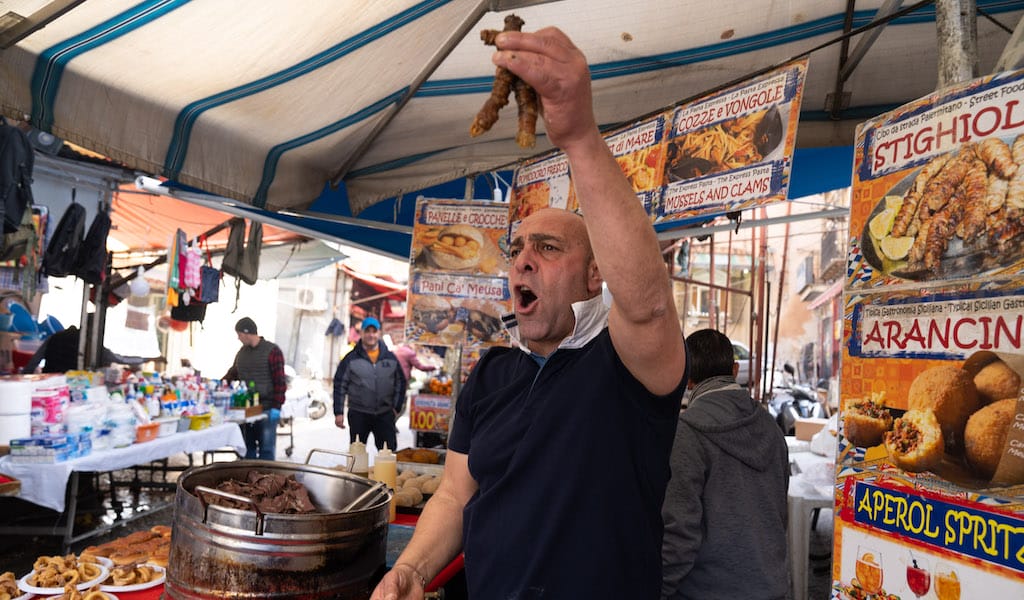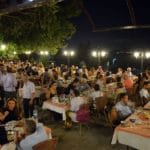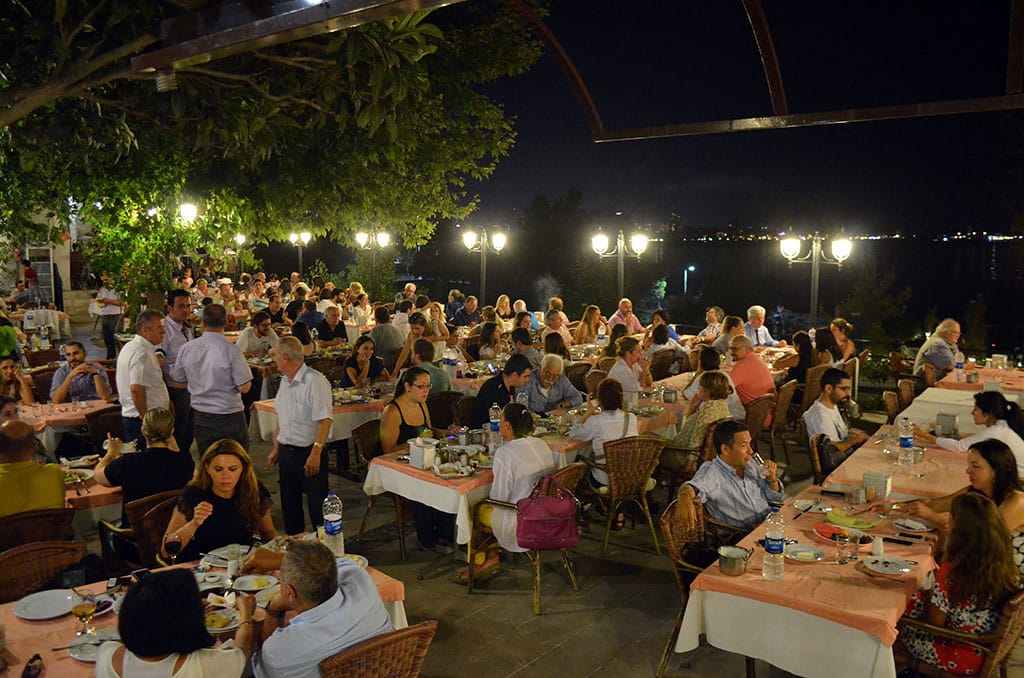Venture inside the Ballarò market – a lively and historic city market in Palermo’s Albergheria district – and you will find yourself catapulted into a sensory experience: the colors of the fruits and vegetables, the smoke from the grills clouding the alleys, the smell of spices mingling with the smell of survival. And then the voices: they all shout here. Or rather: they “abbannìano.”
“Abbanniari” is the ancient custom of Palermo street vendors to sing out their goods to attract customers’ attention. Derived from the times and from a world in which marketing studies and advertising techniques had not yet arrived, in which even noticeable signage was a quantum leap that not all merchants could afford, the abbanniata was the democratic and free tool available to street vendors, because all they needed was their own voice.
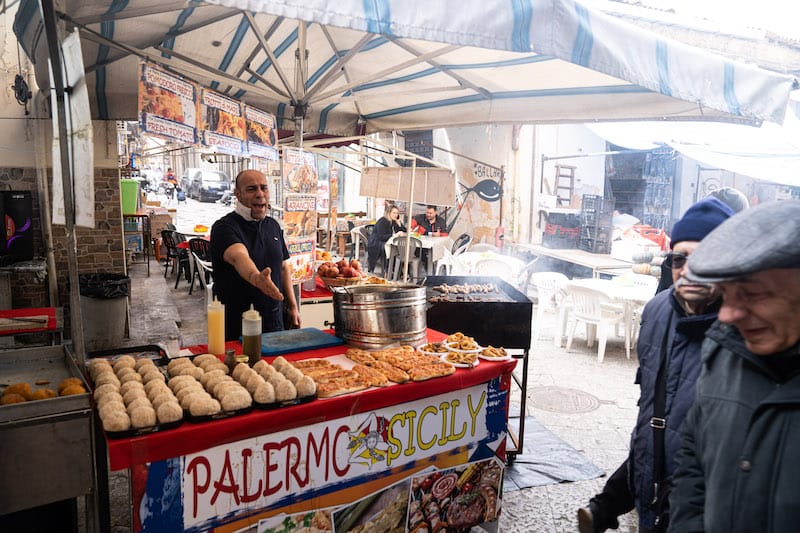
Hence the use of creativity to distinguish themselves from the competition: each vendor would modulate their abbanniata according to their abilities. There were those who made their abbanniata a kind of chant, those who rhymed their goods, those who shouted out comparisons of certain fruits to body parts to scandalize the more respectable clientele.
With the arrival of supermarkets in Sicily, the figure of the street vendor, and consequently the noise pollution caused by the simultaneous shouting of multiple vendors, has declined, although it still survives in provincial villages and neighborhood markets.
Here in Ballarò, one of the vendors who catches our attention is Davide Schillaci.
Mr. Schillaci has his own way to abbanniare: he shouts at the top of his lungs, but in doing so, he manages to entertain passersby by interacting with them, hinting at a song, with a joke always ready and sometimes even a couple of dance moves.
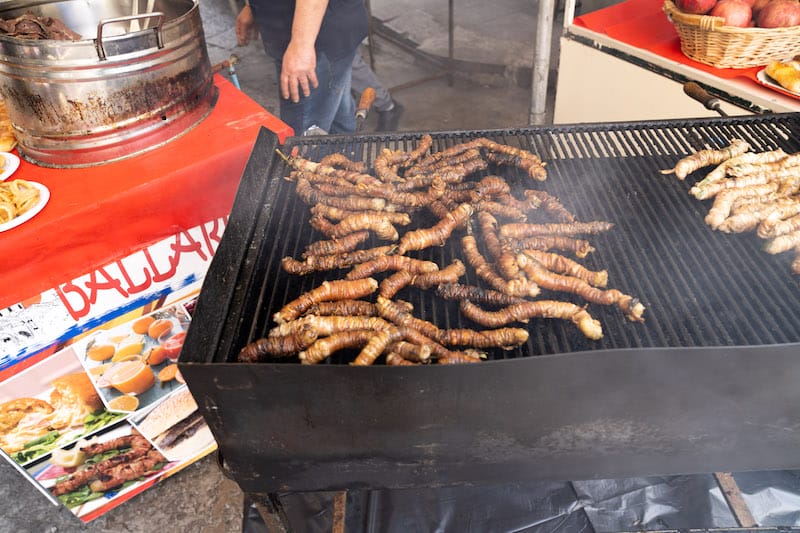
“I’ve always had it, it’s part of my character,” he says of this innate quality. “To do something well, it has to be part of you: if you want to [copy someone] it it’s not the same, it doesn’t come naturally.”
As he talks to us, Mr. Schillaci keeps an eye on entrails sizzling on a blazing grill, occasionally spraying drops of boiling fat that drip and continue to fuel the fire.
He handles them with fingers that look fireproof, reflecting years of experience that began when he was a child in the tavern run by his parents in the Villaggio Santa Rosalia neighborhood. “We used to cook poor food for the construction workers in the area,” he tells us.
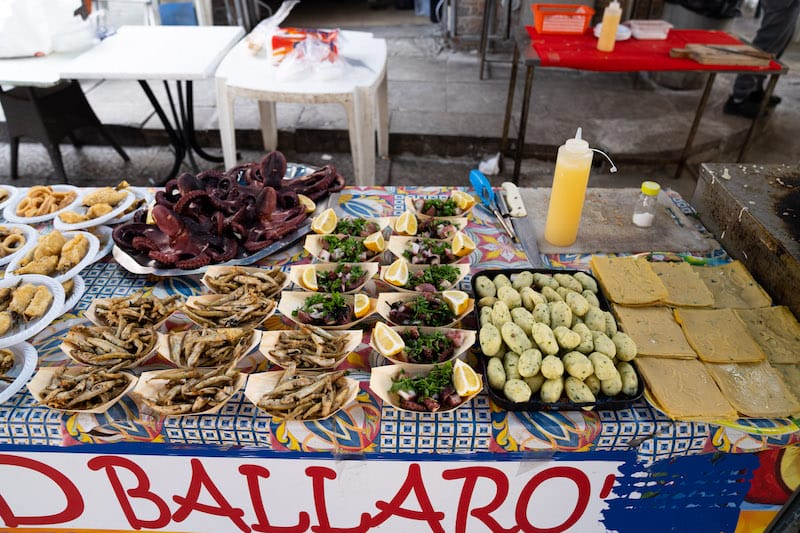
Today Mr. Schillaci runs El Bocadillo with his family, an eatery in the heart of the market that offers Palermo street food classics to its customers: here you will find arancine (fried rice balls stuffed with meat or ham and mozzarella), sfincione (a typical Palermitan pizza-focaccia, topped with breadcrumbs, tomato, onion, anchovies and chunks of caciocavallo cheese), battered fritters (cauliflower and artichokes that are first dipped in batter and then fried) and stigghiola (grilled entrails).
“Stigghiola are animal guts” he explains, “in this case, lamb intestines: they are a piece of fat wrapped in [the lamb’s] own gut. If you want, you can put a spring onion in the middle of it for flavor or leave it natural. It’s put on the grill, cooked, cut into small pieces, seasoned, and ready to eat.” Regarding how to season the stiggghiola, Mr. Schillaci is categorical: “They were born to be paired, today, tomorrow and forever, with salt and lemon.”
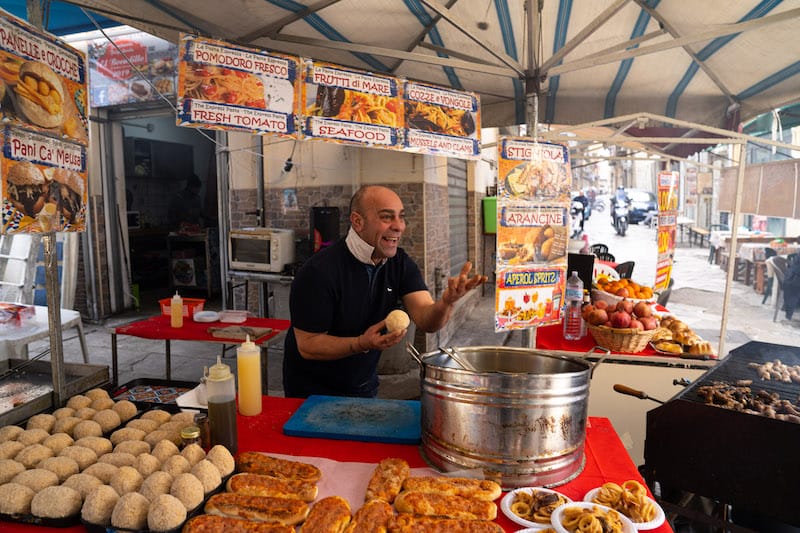
There is a Sicilian saying that goes, “U putiaru nzoccu havi abbannìa” (the trader advertises what he has): in a broad sense, it is used to refer to the behavior of someone who shouts at others what he actually is himself.
In this case, Mr. Schillaci is not only pitching his products, but also his ideas. He explains what he calls “My Philosophy,” or the “Philosophy of Street Food”:
“In the old days, when slaughtering took place, the spleen, lungs, and entrails were thrown away. The poor man, who had no food – or the little he had was often spoiled – since he was due to die anyway, started cooking [these animal parts] to eat. As time went on, the poor man realized that it was good food and continued to eat it.”
“And today you pay money to eat a spleen sandwich or stigghiole,” he says with a smile full of revenge. “That, in my opinion, according to my philosophy, is another point in favor of the poor: he risked dying not knowing if the food he ate would be edible, and today he charges money to the rich to eat what their ancestors once threw away.” End of discussion.
Francesco CiprianoFrancesco Cipriano
Published on May 05, 2023
Related stories
March 9, 2022
New Orleans | By James Cullen
New OrleansBeignets & More is the kind of place you want everyone to know about – and you don’t want anyone to know about. Tucked between a defunct Cineplex and an Off-Track Betting location in a strip mall in Chalmette, a downriver suburb of New Orleans, it is a family-run gem of Vietnamese cuisine. But the…
April 26, 2013
IstanbulIn the realm of Turkey’s small businesses, the esnaf lokantası (tradesmen’s restaurant) hovers above everything like a uniting holy spirit. A good one certainly is divine in nature. Take just about any old esnaf lokantası, and you’re sure to encounter a community that only exists at that particular spot on earth. At Tunçlar Lokantası, not…
June 3, 2016
Istanbul | By Culinary Backstreets
IstanbulEditor's note: In the latest installment of our recurring feature, First Stop, we asked chef Somer Sivrioglu of the Sydney restaurant Efendy where he stops first for food when he returns to his hometown of Istanbul. Sivrioglu is the chef and owner of Sydney's popular Efendy restaurant and the recently opened Anason mezebar in Barangaroo. He…







































